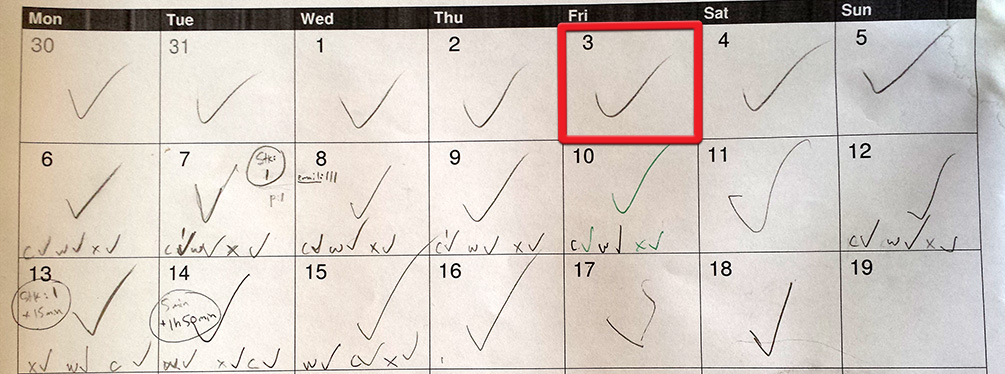I’ve been writing daily for 3 months, so you’d think I have a mass of content to output.
But I’ve had a week since the last post, a looming deadline in 35 minutes, yet I have no post.
I started twice, and failed twice, to produce a blog post that I was happy with.
I was about to go with my backup plan and just shove a TED talk or something up here, when I decided that instead I’d quickly share why I failed this week.
Mistake 1: The Corpse of Memory
Last week, I wrote a post on seeing productivity through the lens of software.
I’m not thrilled with it, but at least it’s original content. Towards the end, I realized I had bit off more than I could chew, and cut it short, “promising” to continue this week.
Well, a few days later when I started writing the sequel, I realized that my ideas had still not solidified. For many days I kept trying to write the followup post, and it just wasn’t going anywhere. As my Tuesday blog post deadline drew closer, I asked myself, “Why do I have to write about this?” and the only answer I could come up with was “I said I would.”
Ok, fair enough. Consistency is important. But the next question was “If I don’t feel it’s valuable yet, wouldn’t it be better for my readers as well if I write something else?”
Then I remembered the following line from Ralph Waldo Emerson’s Self-Reliance:
Why should you keep your head over your shoulder? Why drag about this corpse of your memory, lest you contradict somewhat you have stated in this or that public place?
Speak what you think now in hard words, and tomorrow speak what tomorrow thinks in hard words again, though it contradict every thing you said today.
So that was my first mistake: continuing a thread for the sake of a foolish consistency.
Mistake 2: Epic Scope
With a few days left, I started writing about something I do care about, and something I feel is important. (I won’t make Mistake 1 again and tell you what it is, or when I’ll publish it).
My wife and son were out of town this weekend, visiting in-laws, so I had a lot of quiet time to think and work and write. And what I was thinking about was itching to get out of me.
Ah, but as I typed frantically, the minutes counting down to when I have to pick them up at the train station, the post I was writing grew to epic scope. Literally.
I quote both Steve Jobs and Marcus Aurelius. I have images of the vastness of the cosmos, and of tomb stones. I considered recounting in detail the chilling experience I had when facing the sarcophagus of a Pharaoh who’s name is lost in memory. I talk about famous physicists and the vastness of time.
I found myself thrashing about, trying to make an epic subject fit into my less than epic skills, and rapidly diminishing time. In short, I forgot my own advice to focus on Quality and Frequency, and keep the Scope in check.
I need to learn to trust the only barometer for my work that matters to me: “Am I happy in creating it?” For those posts, the answer was “no”.
This post is short, not very deep, but I enjoyed writing it. I laughed out loud when I decided I would scrap the other two.
And as a bonus, I hope that an honest admission of failure is of more value than a half-hearted attempt at rehashing a previous idea, or an incoherent attempt at tackling something grand and cosmic.
Till next week!
Adriano

